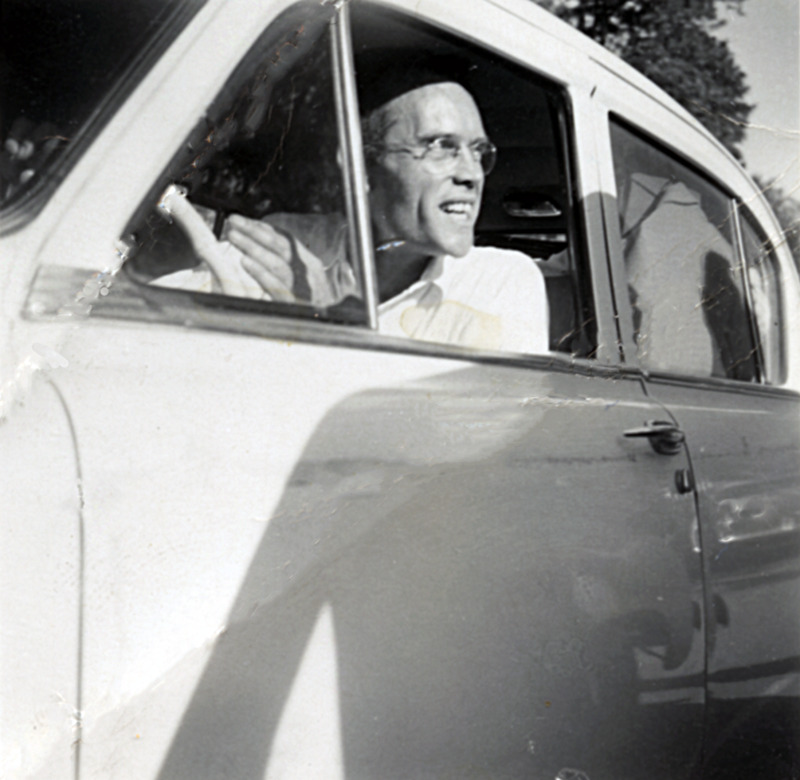-
Title
-
The CSO and Fred Ross
-
Description
-
According to historian Gabriel Thompson, Fred Ross, Sr., was born to an affluent and politically conservative family from Los Angeles. He attended the University of Southern California, where he was exposed to politically liberal ideas. Ross wanted to be a teacher, but after his graduation in 1936, due to the Depression, he took a three-year term as a relief worker. He then became manager of the federally-funded Farm Security Administration (FSA) Arvin Migratory Camp for Dust Bowl migrants located near Bakersfield. He replaced the previous corrupt manager and tried to regain the workers’ confidence by forming a workers’ council and supporting a cotton strike. During his time at Arvin Camp, he met folk singer Woody Guthrie and listened to his songs of political protest.
During WWII Ross worked for the War Relocation Authority in Cleveland, finding jobs and housing for Japanese Americans not placed in internment camps. After WWII, he returned to Los Angeles to work for the American Council on Race Relations, organizing “multi-racial unity leagues.” He led voter registration drives to force out racist local politicians and desegregate schools. His work contributed to the successful 1948 California State Supreme Court decision in Mendez v. Westminster. Ross also worked for Saul Alinsky’s Chicago-based Industrial Areas Foundation (IAF). In 1947 he was hired to promote Latino political power in Los Angeles.
That same year, in Boyle Heights, a Los Angeles neighborhood with a large Mexican population, Ross formed the first chapter of the Community Service Organization (CSO), which was established to protect the civil rights of Mexican Americans and foster political and civic engagement. Fred Ross approached social worker Edward Roybal and Antonio Rios, a union organizer with the United Steelworkers of America, with the idea of forming a community-based organization. In the IAF model, an outside organizer works with local leaders to create a democratic organization where people can identify their concerns and address them through direct action. Edward Roybal became the first president and main spokesman of the CSO’s LA Chapter.
Building on the earlier work of mutualistas, church groups, and community associations, the CSO stressed voter registration and held citizenship classes to promote political involvement. They also addressed ongoing problems such as poor community services and discrimination in housing, education, and employment. After WWII, Mexican American and African American civil rights groups occasionally worked together, though they sometimes differed in their aims and goals. For example, education was an important issue for both groups, but bilingual education was extremely important to Mexican Americans, while busing was a higher priority for African Americans. Fair housing and employment legislation were key issues for both, but Mexicans prioritized pensions for resident non-citizens, who were often not eligible for social services.
CSO members learned the importance of becoming activists in their own communities. By 1963, the CSO had 34 chapters across the Southwest, registering 500,000 new voters and helping over 50,000 Mexican immigrants obtain citizenship in California. In 1949, utilizing the community organizing skills of Fred Ross, Sr., and CSO volunteers, Edward Roybal was elected to the Los Angeles City Council. The first Mexican to win a seat since 1881, Roybal was later elected to Congress, serving from 1963 to 1993.
-
Identifier
-
B4SV Exhibit Topic Five: Slide 013


